I’d been distracted by things like the mangoes on the trees and the sea getting warmer and hadn’t noticed it was THAT time of year again. I was wondering why we suddenly had a rainy day, then found out that it was the “remains of Invest 91.” And then I thought, here we go again…
When my now husband and I first arrived in The Bahamas and realized we had relocated to hurricane alley, it was slightly terrifying. Living in the UK, I’d never had to think about natural disasters. The worst I’d been through was the Great Storm of ‘87, but I slept through that. Now we were hearing stories of destruction from Andrew in ‘92. Eventually we realized there wasn’t any point stressing. We also noticed that if the storms passed just off shore, they would send swell for surf and wind to windsurf. We could look for the positive side to the season.
Now we have children, a house, and a sailboat, that’s all changed. While I understand that there’s no point stressing because I can’t control the storms, I can obsess over the weather and be prepared. Hurricane season behaves like the tide. The incoming and outgoing tides last for 6 hours, just like hurricane season which lasts for about 6 months. Just as the least amount of water moves in the first two hours and last two hours of the tide, the first two and last two months of hurricane season are the quietest. Then, just as the water speeds up in the middle of the incoming or outgoing tide, hurricane season peaks in the middle of the season. So late August through September to early October, things really get busy in the Atlantic. Of course, storms can come anytime. In hurricane season, weather is no longer something that decides what you’re doing for the weekend; now it’s potentially life-changing. This is the process I go through for every system that comes close to my rock in the Bahamas:

I react by obsessing over every system that appears in the Atlantic between June and November!
Before a storm
Before children, I only checked websites that would give me the swell and wind forecasts. Now I watch several websites and follow some various Facebook pages; I analyze spaghetti models and compare the relative reliability of the Euro vs GFS; I observe the amount of Saharan dust in the atmosphere; I keep an eye on the storms brewing over Africa; I know how much the wind shear we have. I have a whole new vocabulary that was unknown and unnecessary before I moved here.
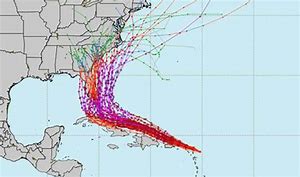
Got to love the spaghetti models. Our island was in there somewhere.
When a storm is on its way
When the storms start bearing down, I’m checking my computer or phone at 8am, 11am, 2pm, 5pm, 8pm, and 11pm, for the National Hurricane Centre updates. I’m also often checking the updates at the same hours through the night if I happen to be awake. Then it’s all about whether or not you’re “in the cone” (check out the song – “Back in the Cone Again”).
But you can’t rely on the cone, especially 5 or more days out. The entire cone can move, so you need to keep checking all the other data. We sometimes joke that you want to be in the middle of the 5 day cone, because it’s so likely to move. That relief when you’re out of the cone is also tempered by the realization that someone else is now having that sinking feeling of being in the cone again.
You also need to brush up on your math skills, because it’s all about percentages. Percentage chance of being hit, percentage chance of formation into a storm, percentage chance of it being a tropical storm or a hurricane, percentage chance of it being a major hurricane. Hard choices need to be made at this point, because if you’re evacuating from a rock, there’s only a limited number of flights. Prices rise closer to the storm, so if you think you might need to evacuate, tickets need booking now. My husband and I have rules such as if it’s a Cat 4 or 5, we go; a 1 or 2, we stay. What about a Cat 3? How do we know what category it’s going to be when it finally hits? Decisions made before hurricane season make no sense when you’re actually in the moment. We evacuated for Matthew and Irma (they ended up just missing) but we didn’t have the option to evacuate last season (we had acquired 2 dogs, which would up the price of flights considerably).

Not what I’d wanted to see on the 8pm advisory for Matthew. Our rock, Eleuthera, was back in the cone again. And it’s the 3 day cone.
When a storm is bearing down
Next, it’s the decision to board up or not. When to board up and which windows to board up (is it worth the risk of going up a ladder 3 stories just to board up the tiny window at the top?). When Matthew was heading our way, I was sick in bed with some tropical disease that I thought could be Zika. The rest of the family were in the UK. I had to get our house boarded up, tidy up the balconies of our rental apartment, then evacuate. I hired people for boarding up, managed to shove everything inside our rental, then make the plane out. I was feeling a little less ill, but absolutely exhausted. It was also very emotional, passing the other boarded up and shuttered houses on the way off the island and wondering if I would see it all again and in what state. There was also that feeling of guilt that you’re not staying for the hard part. If you’re staying, it’s time to buy the all the regular items such as water, food, and batteries. Last year we were deciding whether to buy little generator, a camping stove, and solar lights. You have no idea how long the power will be out, so the days and weeks following the storm become as much a priority as the storm itself.
The storm has passed
If the storm doesn’t hit, or is “only a tropical storm,” there’s the initial relief. Then there’s the irrational irritation that you put in days and days of stress, research, and money in preparation and now it’s all for nothing. But you can’t vocalize this because you know how lucky you are and of course you didn’t want the alternative. My husband stayed in our house in Eleuthera for Sandy as a Cat 2 and even without damage, it sounded terrifying. I’ve only been through Tropical storms to minor Cat 1s and they scared me.
As you wish for the systems to miss your rock, at the same time, you don’t want to wish destruction on someone else’s. If only all systems could turn away from land and dissipate in the Atlantic. I wish everyone living on rocks that are threatened by hurricanes all the best for this season.
Want to stay connected to the Land of Coconuts?
We'll send you island mail, fresh from the tropics each week.
You have Successfully Subscribed!
Resubscribing? Click here.







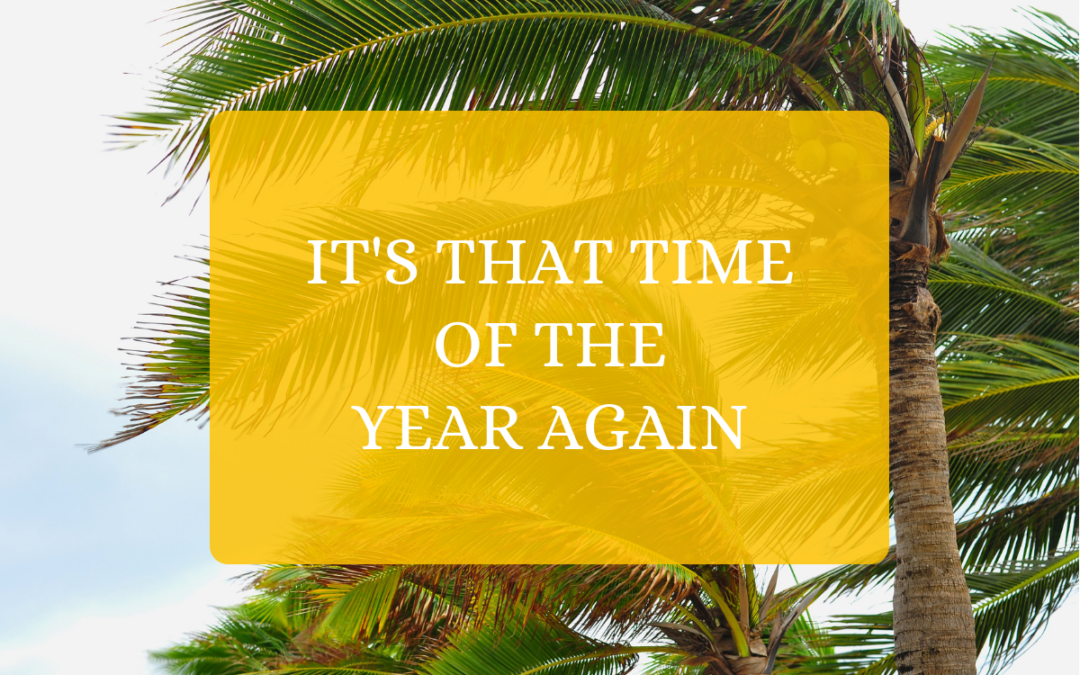
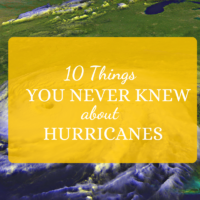
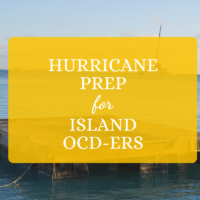
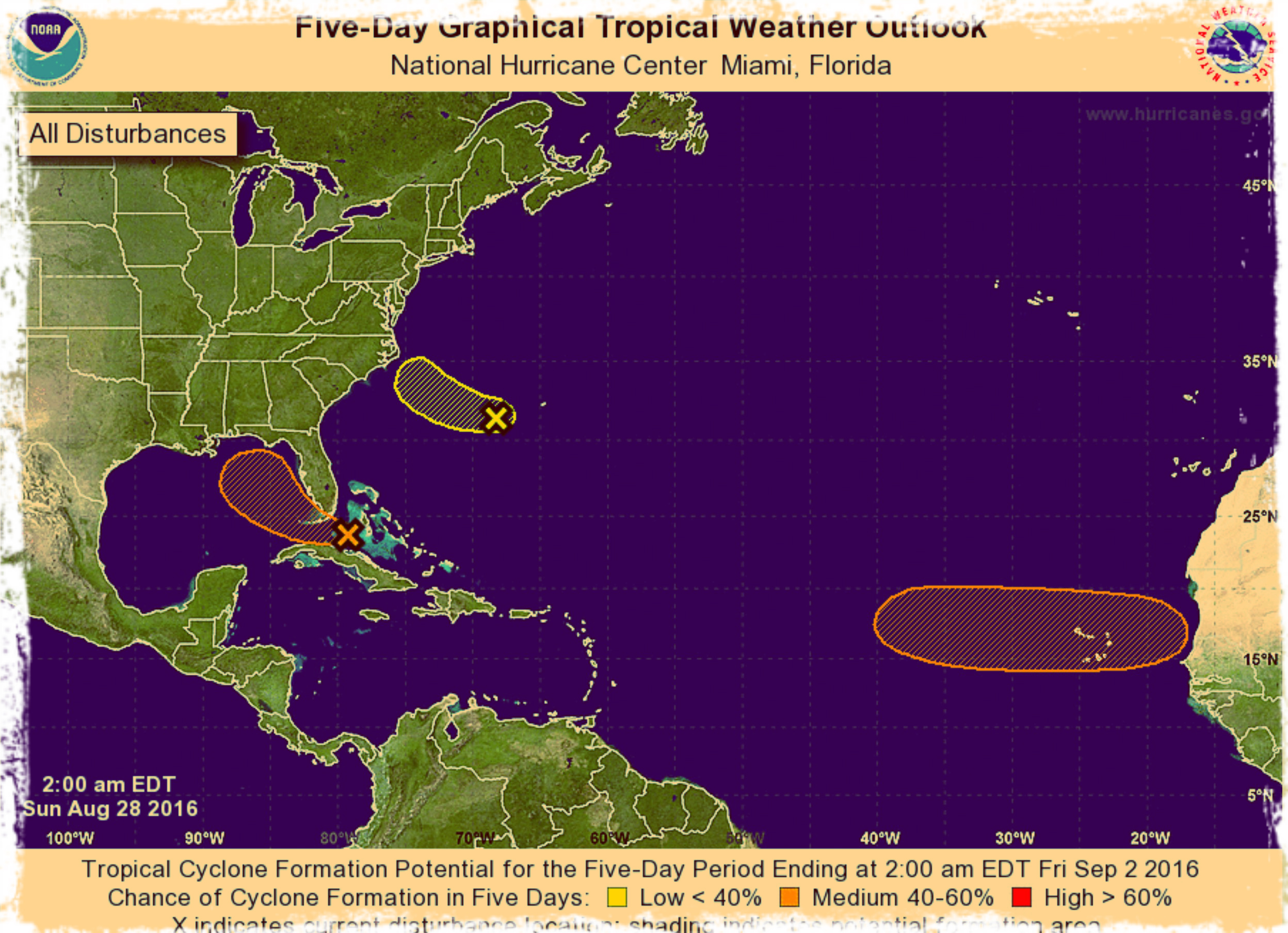
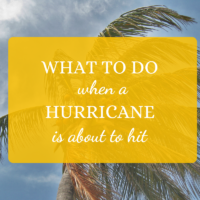




2 Comments